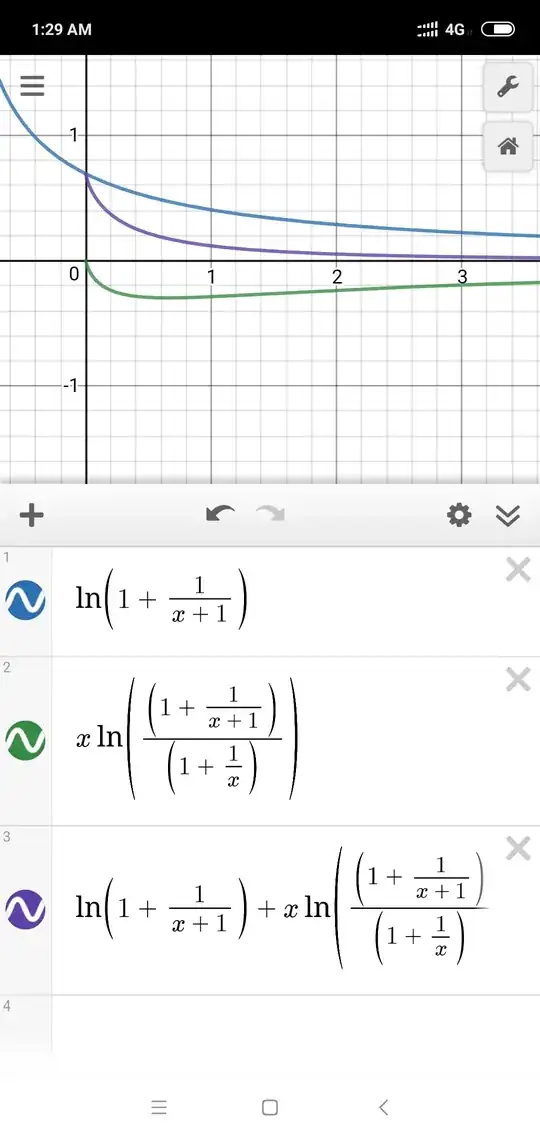Prove that for any positive integer n, the following inequality is true. $$\left(1+ \frac{1}{n}\right)^n < \left(1+\frac{1}{n+1}\right)^{n+1}$$
Attempt
Not a good attempt but this is my thinking
It will not be a problem when checking whether this is true for smaller integers. Only for larger integers, it will be difficult to prove. So, I took the equation LHS-RHS < $0$. I took limit for n tending to infinity and then applied L'Hospital Rule( though the equation was difficult to handle) & therefore could not do anything further.
Edit: I, now, want to know about @Rebellos' last equation and his answer (though at first my intention was to know about the question). Please see the comments of @Rebellos ' answer.
Adding graph for @Rebellos 's last equation
